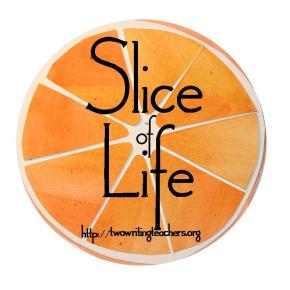I love writing, teaching writing, and helping others love writing.
There was a time in my career when I designed and co-created workshops for teachers as writers so that they could channel their own positive experiences into the classroom with students, to model for them how an embryo of an idea comes to life, how it grows bones and flesh and begins breathing and crying and rejoicing and blazing trails right there on the page (or screen). I led professional development. I went into classrooms. I worked alongside teachers and kids. I witnessed powerful things…I can still see the tears, the glowing faces, the pride and awe in the eyes of kids (and their teachers) over something they’d created, that came from within.
They wanted more.
That was before changes in my district, moving away from the writing workshop model and Lucy Calkins in general. Now writing is embedded in the Language Arts curriculum, largely in response to reading. The goals are lofty and writing assignments follow a highly prescribed pattern. Neatly formulaic. Uniform.
That is not to say there’s never any creativity… for example, in a nine-week unit series of extensive reading and writing about frogs, the students get to compose poems and write pourquoi tales about frogs. The pacing and process are pretty intensive… which is why a teacher came to me: “Could you meet with some of my students to help them with the pourquoi tales? So many are struggling. Meeting with each one is taking so long.”
It was like old times, almost, these writing conferences…except with the unique challenges of writing a myth about how some true facet of frogdom came to be while describing the setting and the frogs, giving them character traits, having them talk, and ending up with a lesson learned, i.e., moral to the story. —Did I say, by the way, these kids are around eight years old?
And did I say that there’s no way to teach writing without conferring with the writers? This is, in fact, THE teaching…teachers learning about the learners and figuring out what to do for them.
For there is an English learner who understands so much more than he’s able to convey; his struggle is with grammar, as word order is different in his language. His ideas, however, are original; he incorporates what he knows about his own father’s work. There is a child who missed some critical days in the unit and didn’t understand what to write about, and therefore wrote a completely off-topic but interesting narrative. Once he understood, he went on to compose an engaging narrative with a brilliant, metaphorical moral.
One by one, the kids came, and we talked about what they were trying to accomplish with this pourquoi, and then we figured out the big “hows” and “whys” in the tale… usually by my asking “what if…” and the lights in their eyes would come on. The sparkly pink and rainbow-dotted and brown-and-blue striped frogs came to life. They had conversations. They made bad choices like cheating; they made good choices by helping each other anyway. The tales explained why frogs jump so high, why their tongues are so long, why some are so colorful, why some are poisonous. They learned a lot of lessons about being better frogs.
One resistant boy didn’t want to stop working on his draft revisions to go to specials: “This is fun!” he said.
Oh, child. Somewhere the King of Frogs nods his head in understanding. I can almost see his tiny golden crown cocked to the side of his head, by his ancient and all-knowing eye:
Ribbit.
Only I hear it as Pourquoi…
Why.

with special thanks to Two Writing Teachers for all you do on behalf of student writers and their teachers…our stories matter.


